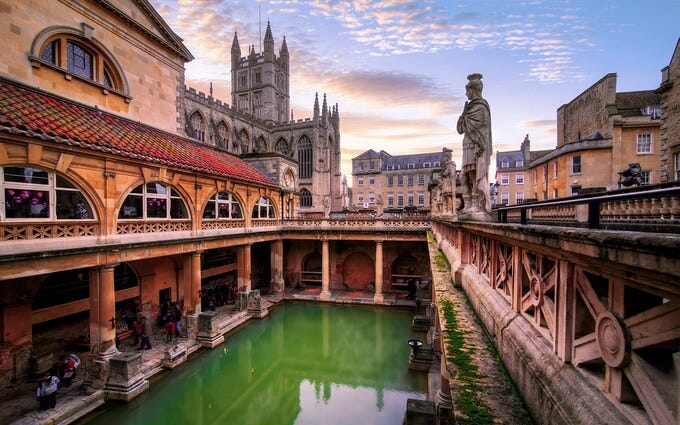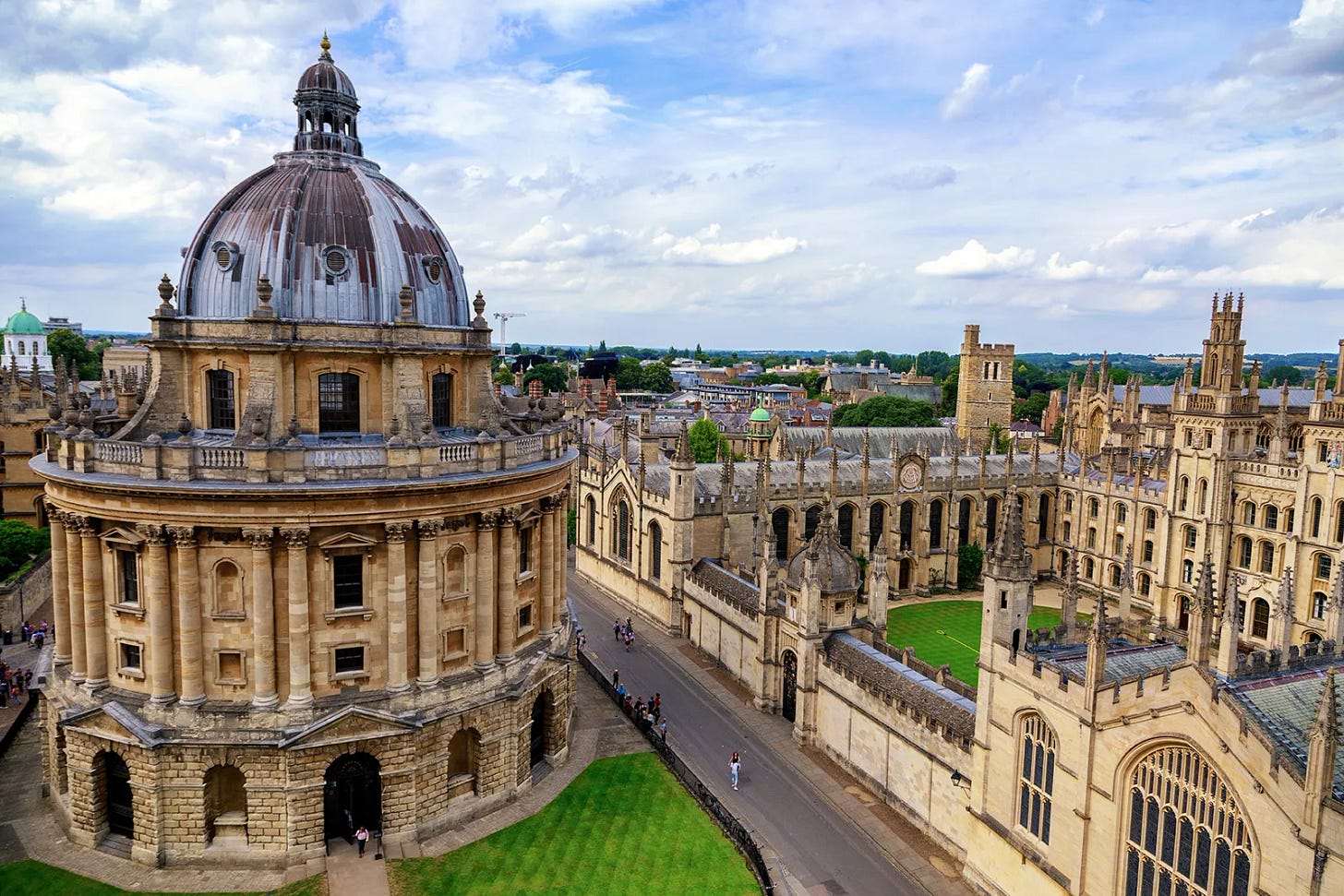Job interview tips + 5 day trips around London!
What questions to expect in an NHS job interview? We unpack the top questions and what they mean. Plus some fabulous day trips from London!
Most NHS job interviews revolve around the points mentioned below. Here I unpack what the interviewers actually want to know when they ask these questions:
Why do you want to work for (Insert specialty)? This question is asked to understand your motivations and to see if you have a genuine interest in working in the department you’re interviewing for. Emphasise your passion for helping people, your commitment to the specialty, and your desire to work in a diverse and challenging environment.
What relevant experience do you have in your field? Here, the interviewer wants to know about your prior work experience and how it relates to the role you are applying for. Discuss specific examples of cases you have worked on, procedures you have performed, or initiatives you have taken that demonstrate your expertise.
What are your greatest strengths and weaknesses? Be honest but also focus on how you have improved upon your weaknesses. Highlight your strengths and give specific examples of how you have used them in your previous role.
Can you tell us about a difficult situation you faced and how you dealt with it? The interviewer wants to see how you handle stressful situations and if you have the ability to problem-solve. Provide a clear and concise example of a challenge you faced and how you navigated it. Emphasise the steps you took to resolve the issue and the outcome.
How do you handle conflict with colleagues or patients? This question tests your ability to work in a team and handle difficult situations with empathy and professionalism. Explain your approach to conflict resolution and provide an example of a time when you successfully navigated a difficult situation.
How do you stay current with advancements in your field? The interviewer wants to see that you are proactive in keeping your knowledge and skills up-to-date. Discuss your approach to continuing education, such as attending conferences, reading journal articles, or participating in training programs.
Why should we choose you for this position? This is your opportunity to sell yourself and highlight why you are the best candidate for the role. Discuss your relevant experience, skills, and qualifications, and explain how they make you a strong fit for the position.
Can you tell us about a time when you had to prioritise multiple tasks? The interviewer wants to see if you have the ability to manage time and prioritise effectively. Give a specific example of a time when you had to balance multiple tasks and explain how you approached the situation to ensure everything was completed on time.
How do you handle stress and pressure? As a doctor, you may face high-pressure situations regularly, so it's important to show that you have the ability to manage stress. Discuss your coping mechanisms, such as exercise, meditation, or time management techniques, and provide an example of a time when you successfully handled a high-pressure situation.
Can you tell us about a particularly challenging patient case and how you approached it? This question tests your problem-solving skills and your ability to handle complex medical cases. Provide a specific example of a patient case that presented unique challenges and explain the steps you took to address the situation, including any consultations or referrals you made.
How do you communicate with patients and their families? Effective communication is crucial in the medical field, so the interviewer wants to see that you have strong interpersonal skills. Discuss your approach to communicating with patients and their families, including how you ensure they understand their treatment options and any risks involved.
How do you collaborate with other healthcare professionals? The interviewer wants to see that you are a team player and have the ability to work effectively with other healthcare professionals. Discuss specific examples of interdisciplinary collaborations you have been a part of and the outcomes of these collaborations.
Remember to maintain a friendly and professional tone throughout the interview and to make eye contact with the interviewer. In addition to answering the questions, be prepared to ask the interviewer questions about the role, the department, and the organization. This shows that you have a genuine interest in the position and are eager to learn more about the organization. Good luck!
Do you have an interview coming up? Are you feeling nervous about it? Have you never done a job interview before? Click here to book a mock interview over Zoom - you’ll be given interview questions tailor made to your job description to practice before the mock interview, detailed feedback on how to make your interview style better and a review of your CV. Join dozens of IMGs who have benefited from these structured mock interviews and improved their confidence massively!
If you live in London you are lucky enough to have excellent rail connections with many places outside London. You are spoiled for choice for day trip options. Here is a list of top 5 day trips outside of London along with links to the destinations and estimated train ticket costs:
Bath - Bath is a historic city located in the south west of England, known for its stunning Georgian architecture and Roman Baths. The city also has several museums, parks, and gardens that are worth visiting. The Bath Spa railway station provides excellent connections to London, making it an ideal day trip destination
Train ticket cost: Approximately £20-£30 for a round trip ticket from London Paddington to Bath Spa.
Oxford - Oxford is a city famous for its world-renowned university and stunning architecture. Visitors can take a tour of the university, visit one of its many museums, or explore the historic city center. Oxford has a rich cultural heritage and is home to several historic buildings, including the Bodleian Library and the Ashmolean Museum.
Train ticket cost: Approximately £20-£30 for a round trip ticket from London Paddington to Oxford.
Cambridge - Cambridge is another city famous for its university and stunning architecture. Visitors can take a punt along the River Cam, explore the city's many museums and galleries, or visit one of the university's famous colleges. Cambridge is also known for its lively market square and quaint shops and restaurants
https://www.visitcambridge.org/
Train ticket cost: Approximately £25-£35 for a round trip ticket from London Kings Cross to Cambridge.
Brighton - Brighton is a seaside town located on the south coast of England, known for its vibrant nightlife, diverse shopping, and cultural scene. Visitors can explore the famous Brighton Pier, visit the Royal Pavilion, or take a walk along the promenade. Brighton also has a number of green spaces, including the Brighton and Hove seafront and the South Downs National Park.
https://www.visitbrighton.com/
Train ticket cost: Approximately £20-£30 for a round trip ticket from London Victoria to Brighton.
Canterbury - Canterbury is a historic city located in the southeast of England, known for its stunning cathedral and rich cultural heritage. Visitors can explore the city's many museums, including the Canterbury Roman Museum and the Canterbury Heritage Museum, or take a stroll through the historic city center. Canterbury is also surrounded by stunning countryside and is located close to the Kent coast, making it an ideal destination for outdoor enthusiasts.
Train ticket cost: Approximately £25-£35 for a round trip ticket from London St. Pancras to Canterbury West.
Please note that the train ticket costs may vary depending on the time of travel and the availability of tickets. It's always a good idea to check the official websites of the train companies for the most up-to-date information.
The next edition will cover ‘Mental Health and Well-being for IMGs’ - an overview of when to seek help, how to seek help and your rights to time off sick as an NHS staff member. Keep an eye out for the next newsletter!








